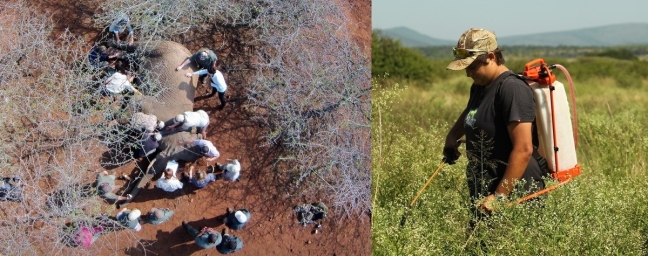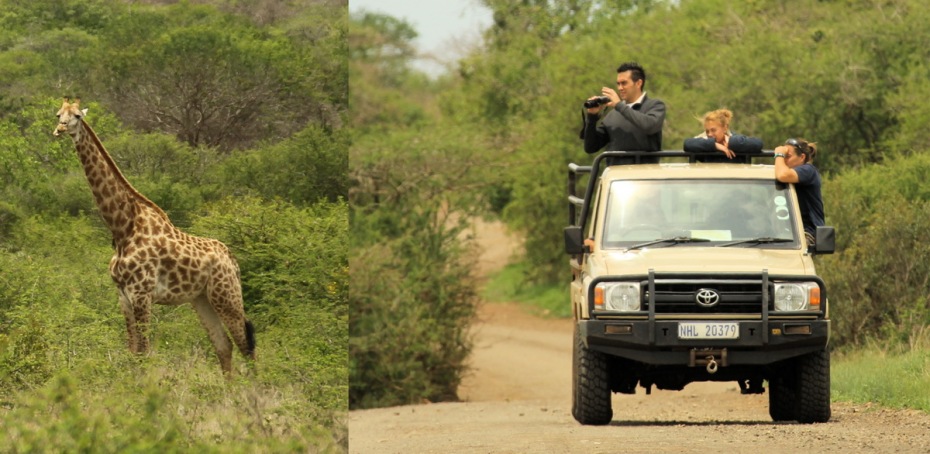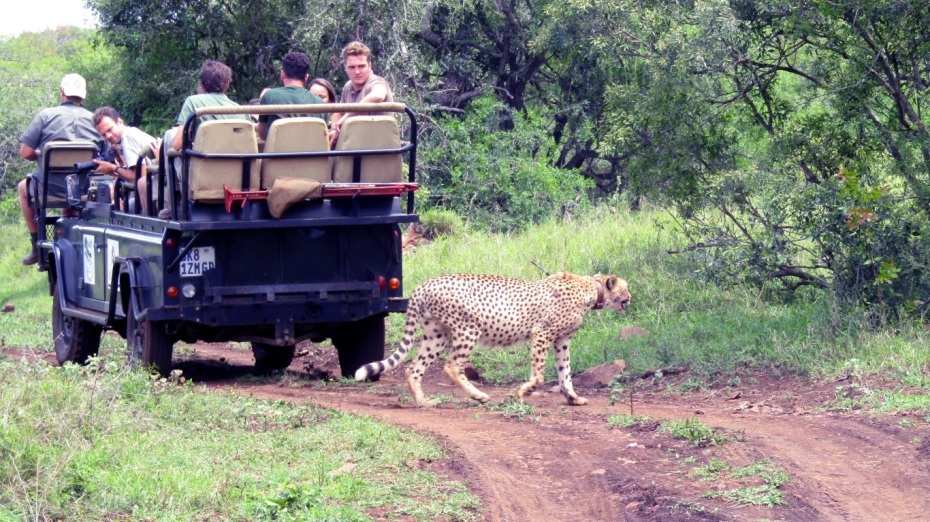As a volunteer you will be exposed to both reserve management and research activities. Below are some of the conservation activities and research projects that you may be involved in during your stay.
Reserve Management
Reserve management is highly complex as it strives to achieve a balanced ecosystem that can support a wide range of species in their varied habitats. Ongoing habitat management is essential to maintain this and as a volunteer with Ulwazi you will have the opportunity to participate in all aspects of reserve and habitat management.
Improvement of habitats
Historically, migrating herds moved through Zululand but fences, hunting, and livestock farming significantly changed this. As a result, areas that were once open grasslands with a particular species composition were overtaken by woody vegetation with a different ecosystem dynamic. We need to rehabilitate these bush-encroached areas to restore balance to the reserve, thereby ensuring sufficient food, habitat diversity and cover for all species (grazers, browsers and carnivores).
Bush encroachment control
Bush encroachment is essentially the uncontrolled spread of indigenous vegetation. This threatens the biodiversity of an area because the encroaching species prevents others from thriving. Dicrostachys cinerea (or Sicklebush as it is commonly known) is one species that can be a significant encroacher. Bush encroachment control is an ongoing activity on the reserve.
Rehabilitation of eroded areas
Rehabilitation of eroded areas on Thanda Safari is an ongoing activity. Predominantly addressed in our winter months (June-August) when the temperatures are lower and easier to work in, the rehabilitation exercises prepare the land for the summer rains.
Alien vegetation eradication
Alien vegetation refers to plants that are not native or indigenous to South Africa. Not all alien plants are invasive, but the ones that are grow and spread at an alarming rate, outcompeting indigenous species. Alien plants are a major threat to ecosystems in many parts of South Africa and have invaded 10-million hectares countrywide (an area the size of the province of KwaZulu-Natal). This is 10% of the country’s available land. On Thanda Safari we have eight key invasive, problem-causing plants, some of which are only visible after the rains. During your time with us, you will be involved in removing them from the land.

Research and Monitoring Projects
Hyaena population density and space utilisation
Via our camera trap survey, Thanda Safari has built a database of hyenas that occur on our reserve. Some of the identified hyenas have also been seen on neighboring reserves, which has raised questions about their space utilisation and what primarily drives their movement (i.e food availability/hunting/other predators etc.). This is an exciting project where volunteers have the opportunity to participate in nocturnal work to locate and monitor these fascinating animals.
Game counts (conducted annually between August and October)
Road-strip game counts are completed annually in order to establish the numbers of general game and also their age and gender. This is a critical aspect of game reserve management to ensure that eco-system balance is maintained to support all species.
Rhino monitoring
Rhino poaching continues to rise in South Africa, putting this magnificent member of the Big-5 at risk of extinction. Rhino monitoring is a key part of our work on the reserve to support our field rangers in finding and identifying all our rhinos on a regular basis. This is part of our multi-pronged anti-poaching initiative.
Nocturnal mammal surveys
Very little is known about the numbers and home ranges of many of Thanda Safari’s smaller nocturnal mammals. To gain greater understanding and insight, and to extend our knowledge base, we combine data from camera traps with data from night-drive monitoring. Nocturnal surveys focus predominantly on Aardvark, Honey Badger, Porcupine, Leopard, White-tailed Mongoose, Caracal and Serval.
Bird density and diversity surveys
Bird density and diversity say a lot about the health of an ecosystem, as birds are one of the first animal groups to be affected by changes. By measuring the bird density and diversity of specific areas on a regular basis we can create a baseline standard for the area. This then allows us to identify and address negative impacts more swiftly.
Elephant and Lion IDs
To have a healthy population of these animals it is important to get an understanding of how many lions and elephants are on the reserve, what space they use and how they are related. As a volunteer you will assist in finding and identifying both elephants and lions. The information collected will be used to create a database that can facilitate a better understanding of how the animals interact and what areas and habitats they favour.
Cheetah monitoring
Cheetahs are an endangered species that face many threats in an enclosed reserve. To be able to secure their health and to get a better understanding of their movements the cheetahs on the reserve are monitored and all data stored for further research.

Bush-learning Opportunities
Africa Nature Training has 16 years of experience training professional guides as well as nature enthusiasts. They will bring this expertise to bear in the activities that volunteers are offered as part of their programme. These will include the ‘Track and Sign’ and ‘Plant and Animal identification’ workshops outlined below as well as other activities such as basic survival skills, stargazing, and navigation skills using natural indicators. The latter are dependent on which programme the volunteer is enrolled on.
Track and sign field identification
You will learn to identify the spoor of a variety of animals as well as their behavioural signs. Learn the ‘tricks of the trade’ in order to find animals. Expect to look at the bush afterwards with brand new eyes!
Plant and animal identification workshops and practicals
Volunteers will participate in a variety of plant and animal identification workshops and practical sessions. The knowledge gained will facilitate a more in-depth understanding of the research and reserve management projects in which volunteers are participating.

